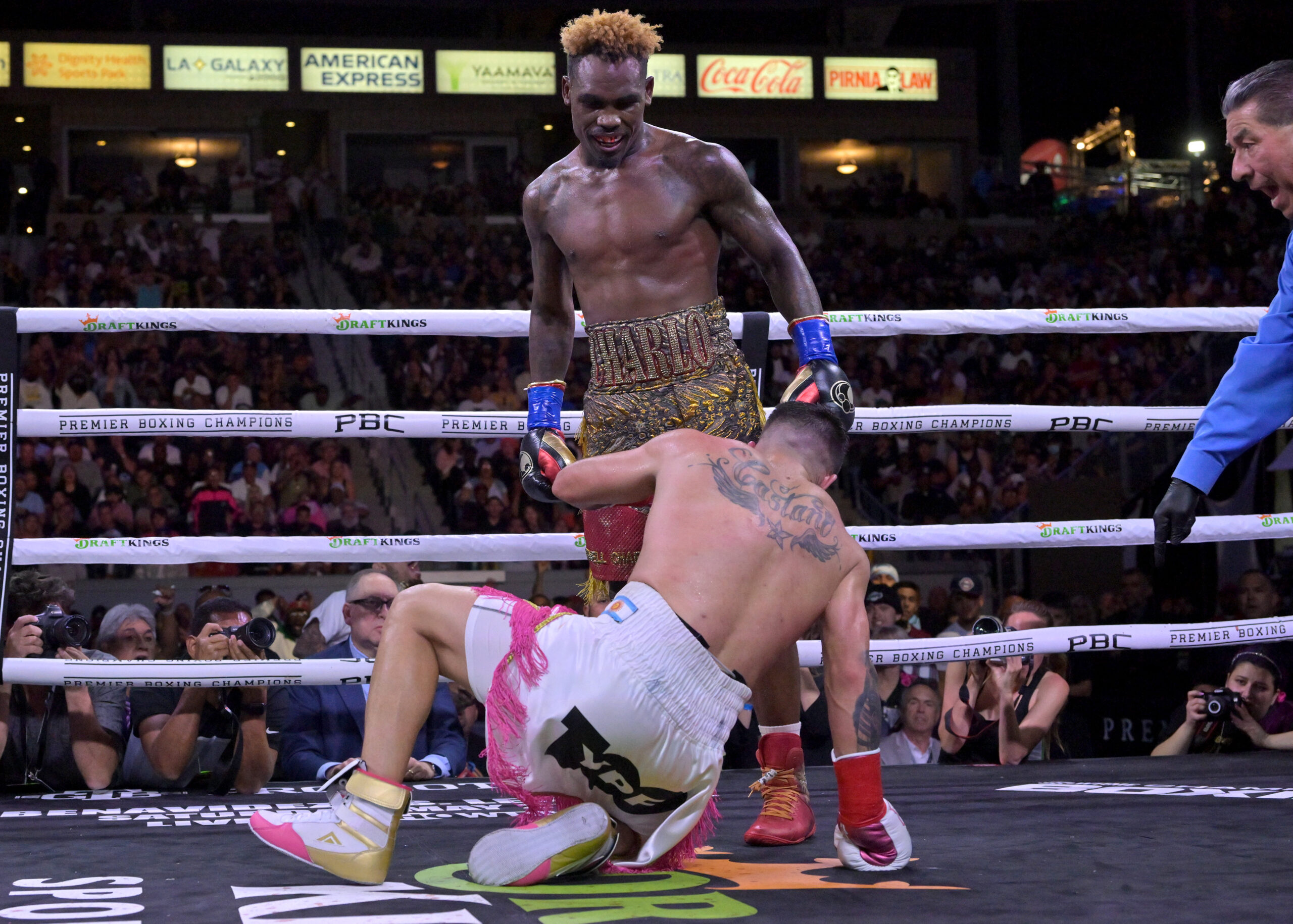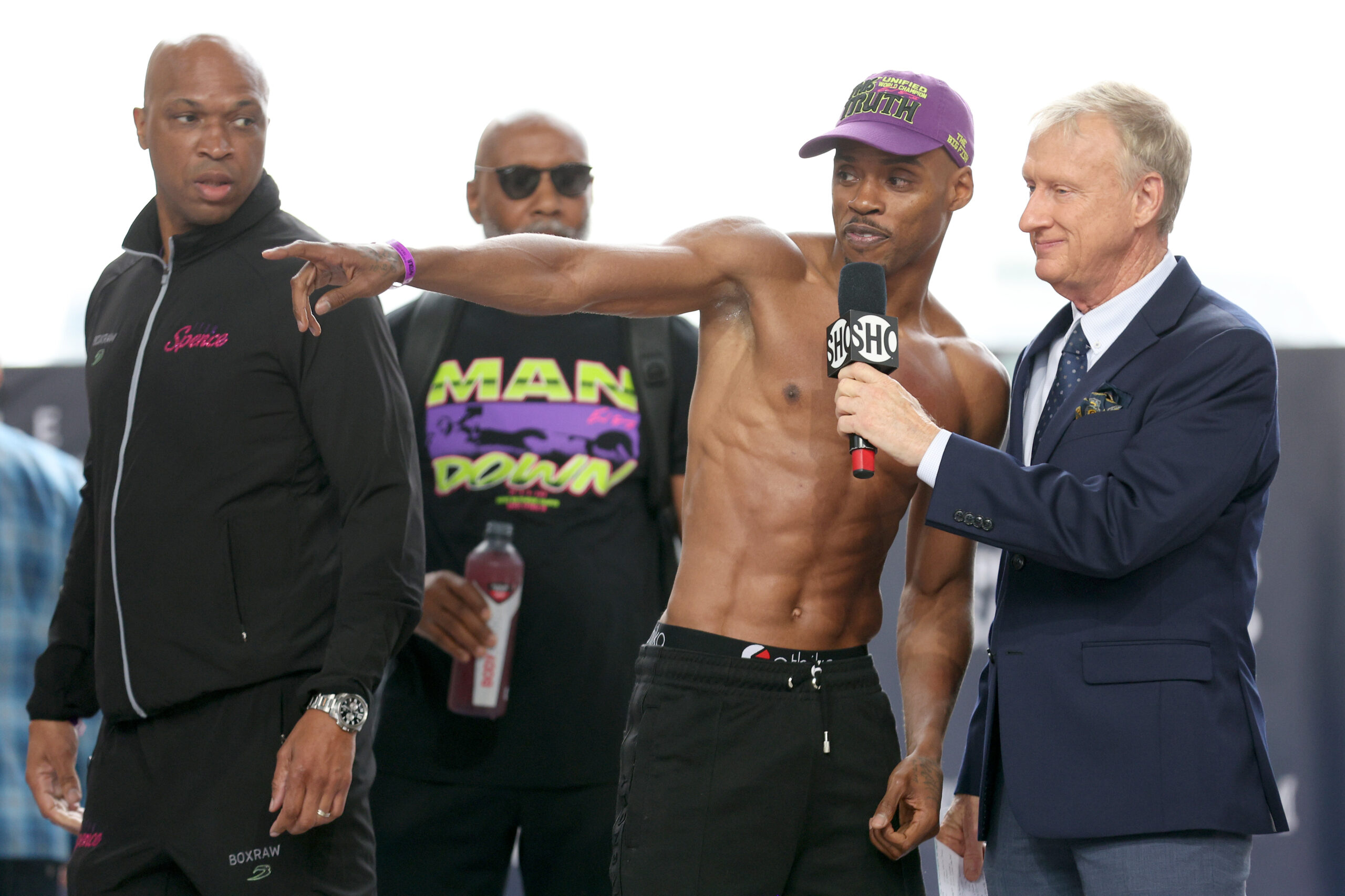Since the Orange Revolution of 2004, the former communist nation of Ukraine has been in political upheaval as the people yearn for democracy and greater freedoms. Vitali Klitschko, a superstar in his homeland, has long pained over the plight of his countryman. And now he steps away from professional boxing to become a catalyst for change.
Though he has not defended his title in 15 months, Klitschko dominated the ranks of heavyweight boxing for the better part of a decade with a rigid jab and mechanical precision. He could be seen as the beginning of the end of America's dominance of the weight class. Once upon a time, the heavyweight champion of the world was almost always African-American or of African descent. Back when Evander Holyfield, Lennox Lewis, and Mike Tyson were plying their trade in the ring it was almost a forgone conclusion that the next champ was going to be black. Then Vitali came along.
The American image of the Eastern European fighter was largely gleaned from popular culture. Who can say that images of the fictional fighter Ivan Drago, played by Dolph Lundgren, in the Sylvester Stallone franchise Rocky, didn't eventually come to mind? People initially saw the 6'7" 245 pound Vitali appearing in bouts on American television, back in 1996 against American Tony Bradham. And Americans,who love stereotypes. Couple that love for stereotypes with Vitali's thick Ukrainian accent and cold demeanor, and Vitali seemed tailor-made to suit our need for a villain or some alien to root against.
Shivers of the Cold War still reverberated throughout the Western world when he made his debut in 1996, particularly in America. Up until he won his first belt, the WBO Inter-Continental Heavyweight Title with a victory over Dicky Ryan in 1998, which was followed by his acquisition of the vacant EBU Heavyweight title with a victory over the Mario Schiesser in 1998, one would be hard-pressed to recall a time when a European or white fighter held two belts in the heavyweight division.
To be fair, professional boxing has used race, class, and ethnicity to promote fights almost from the very beginning. With Vitali's reign came the natural grumblings of American promoters chirping about the inauthentic nature of his rise. Was he the Great White Hope? Or simply a propped up White Stiff who was poised to take advantage of a sport with a draining talent pool?
As the saying goes, “Styles make fights.” And in 2000, Klitschko would come across his toughest opponent to that date in southpaw Chris Byrd. Though the fight was a competitive affair, Vitali would lose because he did not answer the bell in the 9th round − the result of a shoulder injury sustained during the fight. He would eventually win two belts (the WBA Inter-Continental and EBU Heavyweight) before fighting Lennox Lewis in 2003 at the Staples Center in Los Angeles. It was a big-time affair. And as is the case with most fights of this magnitude, the brightest stars in film, music and television lined the expensive seats around the ring.
During the initial rounds, Lewis seemed puzzled over the proper strategy to take to get close to Vitali. Lewis, himself being 6'5", had never fought anyone with such a significant reach advantage over him like Vitali. The Ukrainian used it to pummel the Englishman's face, as the former stood in the pocket to land his own bone-shuttering blows early on.
Lewis had been in pugilistic wars of attrition before having battled Evander Holyfield and George Foreman in the past. The duo stood toe-to-toe in the center of the ring on numerous occasions. Lewis seemed to take the worst of the punishment, with a cut appearing below his left eye in the second round. Klitschko was ahead on the scorecards of two ringside judges after a couple rounds. But Lennox would turn the tables in the third and visibly hurt Vitali with a right cross that ripped open a cut under his left eye. Lewis continued to target the cut, which grew into a blood-gushing gash. The fight progressed and Klitschko's vision grew progressively worse. Until the display in savagery was eventually halted by the fight doctor between round six and seven.
Lewis became the winner by TKO, because his punches opened Vitali's eye. But Klitschko was ahead 58-56 on the scorecards at the stoppage. The crowd booed Lenox, while cheering Vitali, much to the latter's stunned consternation. A rematch was scheduled for 2004, but Lewis would retire before fighting Klitschko again. The affair would go toward solidifying Vitali's reputation as a true heavyweight contender in the minds of the common fight fan, and is still used to disparage Lewis to this day.
After the loss, Vitali Klitschko went on to defeat all comers, finishing his career with a record of 45-2 with 40 knockouts. Say what you will about the competition, but he fought every challenger, was victorious far more than not, and can’t be blamed for fighting those seen as bums relative to their historic peers.
So shout out to Vitali, a great champion and credit to his people. We would all be lucky to have such a representative.



